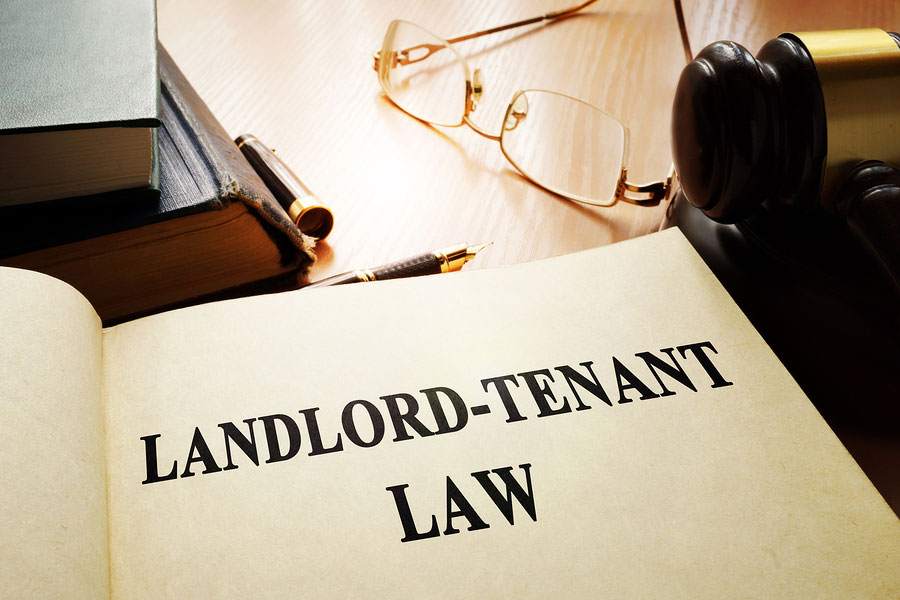Blog

Trusted Northwest Suburban Law Firm
847-944-9400
Security Deposit Law Every Chicago Landlord Should Know
By Michael DeSantis
Every landlord in Chicago should understand the city ordinances governing security deposit law. Security deposits are meant to protect the landlord from troublesome tenants, but many landlords don’t realize that handling security deposit incorrectly can put themselves at risk for a lawsuit with significant financial consequences.
The Chicago Residential Landlord Tenant Ordinance (Chicago RLTO Section 05-12-080) has harsh penalties for landlords who violate the ordinance governing security deposit law. In fact, a tenant who can prove that a landlord has mishandled a security deposit can sue the landlord for two times the amount of the deposit, not to mention attorney fees and court costs.
Unfortunately, though, many landlords don’t find out they have a violation until it’s too late. It’s usually about the time their disgruntled tenant wants their full security deposit back and knows enough about security deposit law to be able to take them to court.
At Gardi, Haught, Fischer & Bhosale LTD, we receive these calls often, which is why it is critical for all landlords in the City of Chicago to fully understand the ordinance governing security deposit law, and avoid making mistakes in the first place. To this end, we are presenting the most basic rules from the Chicago RLTO that every landlord needs to follow when handling security deposits.
Landlords must put security deposits an interest-accruing bank account. [Chicago RLTO 05-12-080 (a) ] A landlord has to hold the security department in an interest –bearing account without commingling the tenant’s money with their own. Tenants are entitled to all interest earned at the rate set by the City of Chicago comptroller. The current interest rate through December 2017 is 0.01percent. Although it may not seem like a lot, it is still the tenant’s legal right to receive it. [CRLTO 05-12-080 (c) ]
The landlord must disclose the name and address of the bank where the tenant’s security deposit is held. This information should be disclosed on the lease and if no lease is available, it should be provided in writing to the tenant within 14 days of receiving the security deposit. Even violating this rule can invoke section 5-12-080 (f), which tells us that a tenant can sue for twice the amount of the deposit, plus court costs, etc.
Landlords must pay the tenant interest at the end of every 12 months. They may pay by cash, or credit the amount to the upcoming rent, but it must be done within 30 days after the 12-month mark.
Tenants must receive a receipt from the landlord when the deposit is received. [Section 5-12-080(b)] include the name of the person who received the deposit, the date the deposit was received, and a description of the rental unit. If the security deposit is given to the agent of the landlord, it would have the agent’s name, but must also identify the actual landlord. The tenant should sign the receipt. If the tenant chooses to pay via electronic transfer, the landlord must provide them with an electronic or printed receipt with the same information.
Landlords can deduct unpaid rent and property damage from security deposits, but they have to do so within a certain time frame. [Section 5-12-080 (d)] Other fees such as move out fees, lost key fees, or returned check fees are typically not considered part of the rent or damages, so these cannot be deducted from a security deposit. For property damage, the landlord must give the tenant a statement of damages, list of the cost of repairs plus paid receipts within 30 days of the tenants vacating. If the work hasn’t been done by then, the landlord should provide an estimate of the repair costs and then they have another 30 days to provide actual receipts. If the landlord cannot follow this time frame, they must return the total security deposit, plus interest accrued, within 45 days.
Landlords are beginning to sidestep the security ordinance issues by creating non-refundable move-in fees. Courts have interpreted what factors tend to make a non-refundable move in fee legal. These factors include the fee being less than half the monthly rent and clearly labelled in writing as a non-refundable fee. The move-in fee is not intended to secure the tenant’s full and faithful performance of the lease, and it is collected in advance of the tenant moving in. Because there is no expectation to receive the money back, tenants should not seek ways to take their landlords to court, as often happens with security deposits. I believe that this trend could really gain traction because landlords are increasingly realizing that following the ordinance to the letter is very challenging and that one little mistake in handling the security deposit could wind up costing them a lot more in court with a disgruntled tenant.
If you are a landlord who is unsure about the Chicago RLTO or aspects of security deposit law, our experienced attorneys can help you. Contact Gardi, Haught, Fischer & Bhosale LTD today!
